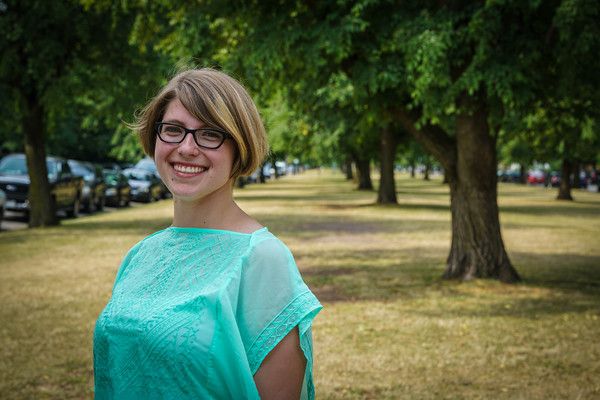"As a carcinoid cancer survivor, I feel like a lone zebra in a sea of pink."
There are certain times of year when my cancer story makes me feel incredibly isolated. There’s the time surrounding April 14, the day I was diagnosed, July 29, the day I was deemed “in remission” and, the one I’ve experienced most recently, the month of October.
It’s hard to explain these feelings without coming off as mean or disrespectful to other survivors, but I really have to talk about them. October is widely known as breast cancer awareness month, leading everything from NFL players’ shoes to the lights on the Peace Bridge to turn pink as part of an awareness campaign. Companies nationwide sell exclusively pink products in specially designed packaging, sometimes donating a portion of their profits to breast cancer research.
In comparison, November 10 was NET Cancer Day, dedicated to raising awareness of neuroendocrine tumors, which is the umbrella term for a variety of uncommon and often-slow growing cancers, including carcinoid cancer and others. Our cancer ribbon is a zebra stripe, meant to signify that most people are diagnosed based on likely possibilities rather than the unlikely ones, making us the zebras in a field of horses. Oftentimes, this leads to NET patients being misdiagnosed and has prompted the slogan of “If you don’t suspect it, you can’t detect it.”
Want to know how many people I saw wearing zebra stripes that day? Just one, and it was the same woman I look at in the mirror every day.
Look, it’s no one’s fault that they don’t know what November 10 is supposed to celebrate. Heck, I didn’t even know until I was diagnosed with an NET myself. But that’s the problem. Even though these types of cancer are rare, that doesn’t mean those diagnosed with it have an easier time with treatment or trying to maintain a quality of life. In fact, it’s usually more difficult.
A lack of awareness of NET cancers has led to a lack of research. For an example, there is evidence of breast cancer dating back to ancient Egypt. While surgeries had been done for decades prior, radical mastectomies were performed as early as 1882. In comparison, carcinoid wasn’t a designated name for anything until 1907 and wasn’t even designated as a specific disease entity until 1954.
Thanks to the study of the disease itself being so behind in comparison to other cancers, the few treatment options are typically very expensive. Imagine finding out that you were diagnosed with a cancer that would leave you with a $3,000/month injection as the ticket to living a normal life.
Those are the kinds of things I’d have to explain to my friends and family. As proud as I was of the knowledge I had about what had happened to my body, it hurt to never have a single person stop me and tell me they knew what I was talking about. Just because my cancer is rare doesn’t mean it is unworthy of support or recognition.
I think some of that hurt is what breeds into bitterness when October rolls around and I see so many of my friends and family members, some of whom are breast cancer survivors, making a huge deal about raising awareness or money for that cause or even being specially recognized for being a survivor of that particular illness.
Those survivors are indeed important, don’t get me wrong. But I, the lone zebra in a sea of pink, am important, too.
Interested in being featured on Roswell Park Cancer Talk? We would love to hear from you! Help us give strength to other young adult patients, survivors, caregivers, family and friends by sharing your personal story.
